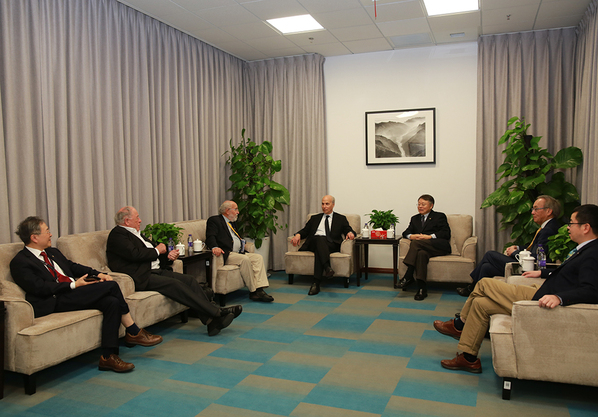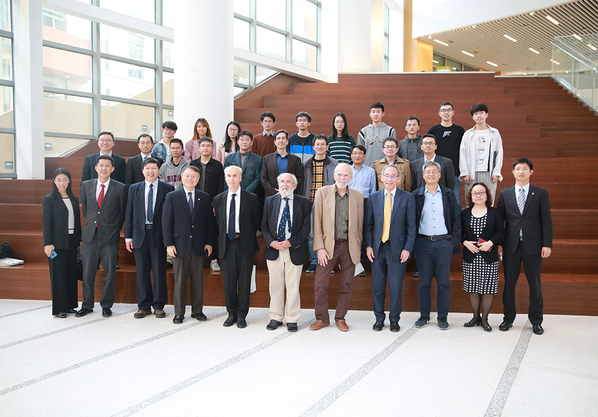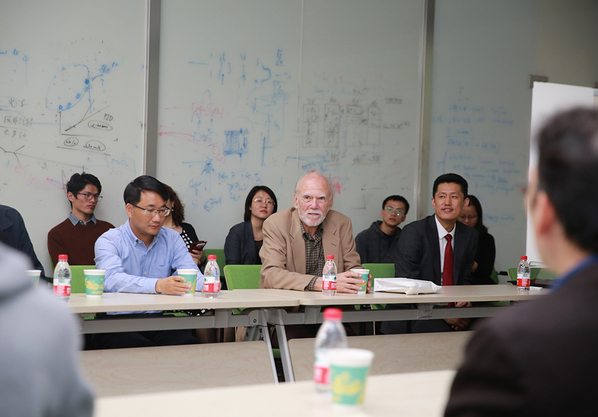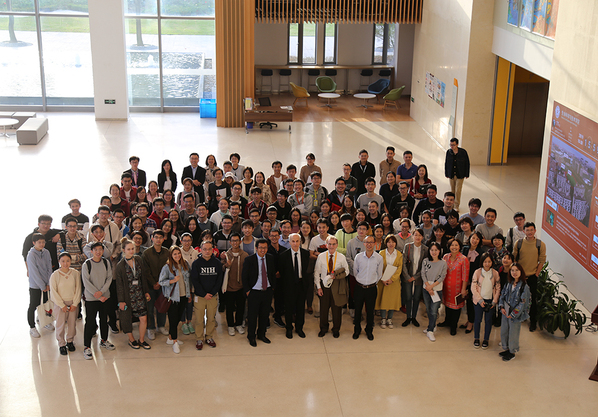On October 30th, a group of six Nobel laureates visited ShanghaiTech during their trip to Shanghai for the World Laureates Association Forum. They were: Michel Mayor (recipient of 2019 Nobel Prize for Physics for his discovery with Swiss astronomer Didier Queloz of the first known extrasolar planet orbiting a Sun-like star), Randy Schekman (2013 Nobel Prize for Physiology or Medicine awardee for his insight into the genetic mechanisms underlying vesicle transport), Barry Barish (2017 Nobel Prize in Physics awardee for his work on the Laser Interferometer Gravitational-Wave Observatory and the first direct detection of gravity waves), Steven Chu (1997 Nobel Prize for Physics recipient for his independent pioneering research in cooling and trapping atoms using laser light), Roger Kornberg (2006 Nobel Prize for Chemistry recipient for his research on the molecular basis of eukaryotic transcription), and Kurt Wüthrich (2002 Nobel Prize in Chemistry recipient for his development of nuclear magnetic resonance spectroscopy for determining the three-dimensional structure of biological macromolecules in solution).
President Jiang Mianheng extended a warm welcome to the scientists and exchanged ideas with them in terms of new trends and hot topics in science. Chairman of the University Council Li Ruxin and Vice President and Provost Yin Jie, along with representatives from schools and institutes, also attended the meeting.
Dr. Barry Barish had an energetic discussion on astrophysics and lasers with faculty and students from School of Physical Science and Technology. As for the puzzle raised by a junior student asking the meaning of data-intensive analysis in astrophysics, Dr. Barish answered that it really cost much time and effort in observation data processing, while observation, statistics and analysis form an integral part of astrophysics. He stressed bearing in mind the way scientists think instead of being a calculator is of great importance.
Dr. Randy Schekman delivered a lecture to students from School of Life Science and Technology on Parkinson's disease, a chronic neurodegenerative disease affecting the central nervous system. It is commonly found in people over 60-years-old and about 1% of the world's elderly people suffer from the disease. The prevalence of Parkinson's disease in China over 65 years of age is about 1.7%. The cause of Parkinson's disease is not yet known and currently there is no cure for the disease. With the increasing trend of China's aging population, Parkinson's disease will gradually become a major epidemic disease affecting the health of china's population. Dr. Schekman introduced the importance of ASAP organization from the basic research of Parkinson's disease, its clinical symptoms and drug research and called on more scholars from all over the world join ASAP organizations to jointly deal with Parkinson's disease. In the end of the lecture, Dr. Schekman asked the students to focus on research with careful and cautious attitude and wished students and faculty members to have booming scientific output.
Face-to-face communication with science and technology masters was a special treat for ShanghaiTech faculty and students. The University is dedicated to boosting education and research and to sowing seeds of hope among young students by inviting the world's top experts and scholars to the campus.






